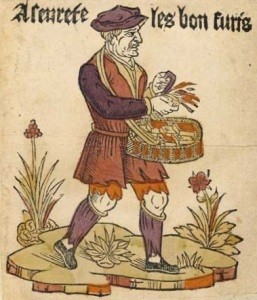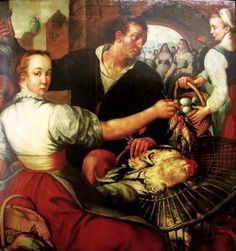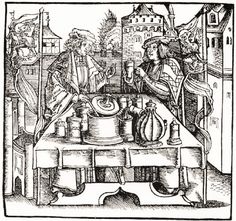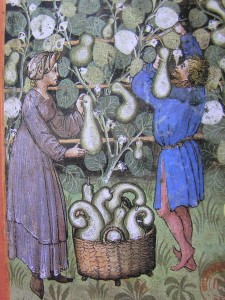Trumpery! Trumpery! All is Trumpery!
By Ira Maine, ESQ.
Dear readers, the following is a compelling extract from none other than our esteemed historian, philosopher, futurist, Ira Maine, ( esq). Once and for all he lays it bare, and gives us a unique perseptive on all things Donald and turnip. Just another instance of our esteemed, P.M, Malcolm Turnbull’s ‘Ideas Boom’ at work.
In a blinding flash of light, a moment of absolute revelation, of terrifying clarity, I realised that Trump, the neo-cons, the financial crisis, the whole kit and caboodle was all our own fault and that the aristocracy had been right all along. If only we had listened…
If it hadn’t been for the damned Black Plague wiping out all of the 14th century surplus labour back then, we could easily have been on the pig’s back by now. If ever there was a point where the Great Unwashed began to demonstrate their capacity for presumptuous uppityness, this was it. This was also the point where the rot set in, where the very foundations of society began their slow disintegration and our present malaise (the triumph of Trumpery, of the lower orders) had it’s true beginnings.
The fourteenth century peasant to this point had always got what he deserved; a fourteen hour day and a wallop in the gob if caught shirking. His payment was a generous allocation of turnips, six rabbits a year and a good seasonal whipping.(which he had to pay for) Suddenly this same peasant, this Back Plague survivor, surrounded by mountains of piled up corpses, found himself in the box seat.
‘Who’s will bury these poxy corpses?’ cried his Lordship, a delicately worked and perfumed kerchief to his offended nostrils.
‘I will, your Honour,’ pipes up the above, miraculously buboe free survivor, a cunning gleam in his eye, ‘but you can stick your turnips up your arse. Me and the lads will settle for nothing else but payment in gold and silver. How’s that sound?’.
‘Gad,’ this top of the pile old aristocrat thought, his world, of an instant, turned upside down, ‘I’m up against it and no mistake, I’d better watch it lest I go from the top of one pile to the top of another, less perfumed one.’
The poor, put-upon lord, fuming inwardly at this lack of cap-doffing, taken wholly aback by this upwardly mobile fellow’s presumption and not a little aghast at his own sudden reversal of fortune very properly resisted the time-honoured urge to summon the troops and have the fellow hanged,. He found himself instead reluctantly agreeing to everything this thoroughly beastly peasant suggested.
‘Is there anything else?’ his Lordship sighed, his heart heavy as he resignedly handed out the necessary lucre.
‘Just one thing, your Honour’, remarked this rapidly developing Wat Tyler of a man, his expression already hardening as he stuffed the cash in his pocket and lifted a questioning eyebrow. ‘You pay for the shovels?’
Following the Black Death, with the interment of millions of bodies all over Europe, and the consequent inconvenient lack of cheap, exploitable labour, the modern money market slowly fired up whilst the old feudal system, the turnip economy, began to disintegrate.
Well, the Roman church became positively apoplectic. Business, the pursuit of profit was becoming a threat. More than that, it was becoming, God help us, a religion!
‘Usury! Usury! ‘ they screamed, ‘Tis a mortal sin, so it is!’,
The money market’s craw thumpers agreed. Usury was indeed a terrible burden with which to burden themselves. A far better plan would be to farm out the practice to a non-Christian. In this way there would always be a (non-Christian) scapegoat to persecute should the repayment of loans prove burdensome. This delightful example of transcendent expediency conveniently ensured that Christians, whilst yet remaining free of the horrors of mortal sin, could still borrow a few quid whenever necessary.
ln the eyes of the Church, lending money and charging interest on that loan was a mortal sin, whilst borrowing money, without which the habit of lending could not exist, was… not?
This was at once a paradox and only capable of true resolution by very intelligent people, by Jesuits, the Church’s intellectual body. And what did they decide? Well, the matter is still under serious consideration but, in the interim and allowing for the benefit of the doubt…
Of course it wasn’t!
(And Ira Maine explains it all tomorrow)




